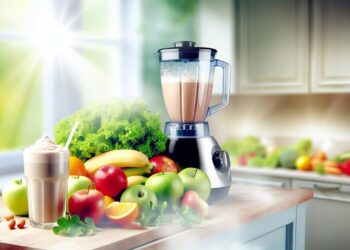Are you tired of the same old dietary habits that leave you feeling sluggish and unsatisfied? It's time to break free from the chains of conventional eating and explore the world of plant-based diets. With an abundance of health benefits and a wide range of delicious options, vegetarian and vegan lifestyles offer a refreshing and sustainable approach to nourishing your body. But how do you navigate the differences between these two lifestyles? What challenges may arise when transitioning to a plant-based diet? And most importantly, how can you ensure you're getting all the essential nutrients your body needs? Get ready to embark on a journey of discovery as we unravel the mysteries of plant-based diets and provide you with practical tips and mouthwatering recipes to inspire your culinary adventures.
Key Takeaways
- Plant-based diets are associated with reduced risk of chronic diseases such as cardiovascular diseases, certain cancers, and type 2 diabetes.
- Vegetarian and vegan lifestyles have key differences, with vegans excluding all animal-derived products to minimize harm to animals.
- Transitioning to a plant-based diet may require adjustments in meal prep and planning, but can be a rewarding and transformative journey.
- Vegetarian and vegan diets can provide adequate nutrients, including protein and iron, with proper planning and consideration of plant-based sources.
Health Benefits of Plant-Based Diets
Plant-based diets offer numerous health benefits, making them a wise choice for those looking to improve their well-being. By focusing on whole grains, fruits, vegetables, legumes, and nuts, plant-based diets provide essential nutrients while reducing the risk of chronic diseases. These diets are rich in fiber, vitamins, minerals, and antioxidants, which can help prevent cardiovascular diseases, certain cancers, and type 2 diabetes.
One major advantage of plant-based diets is their potential to address nutritional deficiencies. Plant-based foods are excellent sources of nutrients such as vitamin C, vitamin E, magnesium, and potassium. By including a wide variety of plant-based foods, individuals can ensure they consume an array of essential nutrients necessary for optimal health. However, it is important to be mindful of certain nutrients that are typically found in higher amounts in animal-based foods, such as vitamin B12 and omega-3 fatty acids. Vegans, in particular, may need to supplement their diets to meet these specific nutrient needs.
Moreover, plant-based diets have a positive environmental impact. The production of animal-based foods is associated with significant greenhouse gas emissions, deforestation, and water pollution. By choosing plant-based alternatives, individuals can reduce their carbon footprint and contribute to a more sustainable future.
Key Differences Between Vegetarian and Vegan Lifestyles
There are significant differences between vegetarian and vegan lifestyles. While both diets exclude meat, fish, and poultry, vegetarians may still consume other animal products such as eggs, dairy, and honey. On the other hand, vegans exclude all animal-derived products from their diet, including eggs, dairy, honey, and even products derived from animals like gelatin and certain food additives.
One key difference between the two lifestyles is the ethical considerations. Vegetarians may choose their diet for various reasons, including health, environmental concerns, or animal welfare. They may believe that by reducing their consumption of animal products, they are making a positive impact on the environment and the treatment of animals. Vegans, on the other hand, take their ethical considerations further by abstaining from all animal products. They believe that animals should not be used for food, clothing, or any other purpose, and they strive to minimize harm to animals as much as possible.
Another significant difference lies in the environmental impact. Both vegetarian and vegan diets have been shown to have lower carbon footprints compared to diets that include animal products. However, vegan diets tend to have an even lower environmental impact due to the elimination of all animal products. Animal agriculture is a significant contributor to greenhouse gas emissions, deforestation, and water pollution. By adopting a vegan lifestyle, individuals can further reduce their ecological footprint and contribute to a more sustainable future.
Overcoming Common Challenges in Transitioning to a Plant-Based Diet

Transitioning to a plant-based diet can be a rewarding and transformative journey, but it may also come with its fair share of challenges. One common challenge is meal prep. Planning and preparing plant-based meals requires some adjustment, as you'll be replacing animal products with a variety of fruits, vegetables, grains, and legumes. To overcome this challenge, it's helpful to research and gather plant-based recipes that you enjoy and find easy to prepare. Creating a meal plan for the week and batch cooking can also save time and make meal prep more efficient.
Another challenge that people often encounter when transitioning to a plant-based diet is ensuring an adequate intake of protein. While it is true that plant-based protein sources may differ from animal-based ones, there are still numerous options available. Incorporating foods such as beans, lentils, tofu, tempeh, quinoa, and nuts into your diet can provide you with the protein your body needs. It's important to note that plant-based proteins can be combined throughout the day to ensure a complete amino acid profile.
Essential Nutrients to Consider in a Vegetarian or Vegan Diet
To maintain a well-balanced vegetarian or vegan diet, it is important to consider essential nutrients. While plant-based diets can provide many health benefits, they may also have some nutritional challenges. Two key nutrients to focus on are protein and iron intake.
Protein is essential for building and repairing tissues in the body. Fortunately, there are plenty of plant-based protein sources available. Legumes such as beans, lentils, and chickpeas are excellent sources of protein. Other options include tofu, tempeh, seitan, and edamame. Additionally, grains like quinoa and amaranth, as well as nuts and seeds, can contribute to your daily protein needs.
Iron is another crucial nutrient to pay attention to in a vegetarian or vegan diet. While plant-based sources of iron may not be as easily absorbed as animal-based sources, they can still provide adequate amounts of this mineral. Good plant-based sources of iron include dark leafy greens like spinach and kale, legumes, fortified cereals, and dried fruits such as raisins and apricots. Consuming vitamin C-rich foods, like citrus fruits or bell peppers, alongside iron-rich foods can enhance iron absorption.
Practical Tips for Meal Planning and Grocery Shopping

When planning your meals and grocery shopping for a plant-based diet, consider these practical tips to ensure you meet your nutritional needs:
- Meal prep: Dedicate some time each week to plan and prepare your meals in advance. This will not only save you time during the week but also help you make healthier choices. Consider batch cooking grains, beans, and vegetables that can be easily incorporated into different meals throughout the week.
- Shop the perimeter: When grocery shopping, focus on the fresh produce section, where you'll find a wide variety of fruits and vegetables. These nutrient-dense foods should form the basis of your plant-based diet. Also, don't forget to explore local farmer's markets for seasonal and budget-friendly options.
- Plan your protein sources: Ensure you include a variety of plant-based protein sources in your meals, such as legumes (e.g., lentils, chickpeas), tofu, tempeh, and quinoa. These options are not only affordable but also rich in essential amino acids.
- Stock up on pantry staples: Keep your pantry well-stocked with staples like whole grains, nuts, seeds, and spices. These ingredients can be used to create flavorful and nutritious meals without breaking the bank.
Exploring Delicious Plant-Based Recipes
Exploring a variety of delicious plant-based recipes can be a fun and satisfying way to incorporate more nutrient-dense foods into your diet. Whether you are a vegetarian, vegan, or simply looking to reduce your meat intake, there are plenty of options to choose from.
When it comes to plant-based dessert recipes, there are numerous tasty and healthy options available. You can try making a vegan chocolate avocado mousse, which combines the creaminess of avocados with the richness of cocoa powder. Another delicious option is a dairy-free strawberry banana nice cream, made by blending frozen bananas and fresh strawberries for a guilt-free treat.
Incorporating plant-based proteins into your meals is also important to ensure you are getting all the essential nutrients. You can experiment with different legumes such as chickpeas, lentils, and black beans to make flavorful and protein-packed dishes. For example, you can make a hearty lentil and vegetable curry or a spicy black bean burger.
Frequently Asked Questions
Can a Plant-Based Diet Provide All the Necessary Nutrients for Optimal Health?
A plant-based diet can provide all the necessary nutrients for optimal health. Nutrient deficiencies are rare and can be easily avoided with proper planning. Research shows that plant-based diets can have long-term health benefits and help prevent chronic diseases.
How Can I Ensure I Am Getting Enough Protein on a Vegetarian or Vegan Diet?
To ensure you're getting enough protein on a vegetarian or vegan diet, focus on plant-based protein sources like legumes, tofu, tempeh, seitan, and quinoa. These foods can provide all the necessary amino acids for optimal health.
Are There Any Specific Supplements That Should Be Taken on a Plant-Based Diet?
To ensure you're meeting all your nutrient needs on a plant-based diet, supplement recommendations can be helpful. Certain nutrients, like vitamin B12 and omega-3 fatty acids, may require supplementation to prevent deficiencies.
What Are Some Common Misconceptions About Vegetarian and Vegan Diets?
Misconceptions about vegetarian and vegan diets include the belief that they lack essential nutrients, are less healthy than meat-based diets, and have no impact on the environment. However, research shows these beliefs to be false.
When following a plant-based diet, navigating social situations and dining out can be challenging. However, with a little planning and communication, you can find plant-based options and enjoy meals with friends and family.
Conclusion
In conclusion, embracing a plant-based diet can be a journey filled with health benefits and culinary delights. By choosing to explore vegetarian or vegan lifestyles, individuals can nourish their bodies with essential nutrients while reducing their environmental footprint. While transitioning to a plant-based diet may present challenges, with practical tips and delicious recipes, this lifestyle can be both accessible and enjoyable. So why not take the plunge and let your taste buds dance to the vibrant symphony of plant-based flavors?













